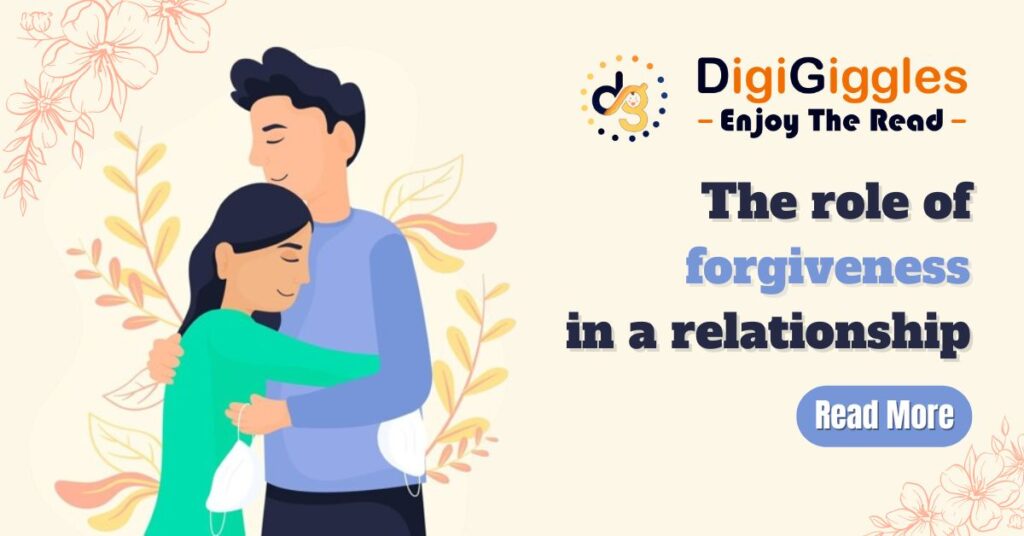
Relationships are like fine china: delicate, precious, and easily broken. But even the most careful couples will inevitably make mistakes and hurt each other from time to time. When this happens, it’s important to remember that forgiveness is essential for maintaining a healthy and loving relationship. Forgiveness doesn’t mean condoning or excusing your partner’s behaviour. It simply means letting go of your anger and resentment and choosing to move on. When you forgive someone, you’re not doing it for them; you’re doing it for yourself. Holding on to grudges and bitterness is only going to poison you from the inside out. Forgiveness is especially important in romantic relationships. After all, we’re at our most vulnerable with the people we love. When we’re hurt by our partner, it can cut deep.
But if we can learn to forgive, we can strengthen our relationship and create a more loving and supportive bond. In the twisted dance of relationships, forgiveness emerges as a powerful partner, capable of mending the fissures that inevitably appear over time. It’s like the unsung hero, often overshadowed by more glamorous relationship attributes, but its role is crucial. Picture this: a relationship without forgiveness is like a ship without a rudder – it may stay afloat, but it’s likely to veer off course when the turbulent waves of life hit. Let’s embark on a journey to unravel the profound role forgiveness plays in the tapestry of relationships.
The Anatomy of Forgiveness
Forgiveness is not a sign of weakness; rather, it is a testament to the strength of a relationship. It involves a conscious decision to release feelings of resentment and the desire for retribution. This act is not merely about letting go; it’s about creating space for growth and healing. When we forgive, we untangle ourselves from the webs of anger and bitterness, allowing the relationship to breathe again.
Communication and Understanding
In the realm of forgiveness, communication takes centre stage. It’s the bridge that connects two hearts, fostering understanding and empathy. A simple apology can be a catalyst for forgiveness, acknowledging mistakes and paving the way for reconciliation. Effective communication in the aftermath of conflict is akin to a soothing balm, healing wounds and strengthening the emotional bonds between partners.
The Ripple Effect
The impact of forgiveness extends far beyond the individuals involved; it ripples through the fabric of the relationship, influencing its overall health. Studies show that couples who practice forgiveness experience lower levels of stress and higher levels of satisfaction. Forgiveness is not a one-time event; it’s a continuous process that nurtures resilience and fortifies the foundation of a relationship.
Navigating the Storms
Every relationship faces storms, and forgiveness acts as the anchor that prevents the ship from drifting into treacherous waters. When partners harbor grudges, it’s akin to carrying excess baggage on this voyage. Forgiveness becomes the gentle wind that propels the ship forward, unburdened by the weight of past grievances. It’s not about forgetting but choosing to move forward despite the scars.
The Art of Letting Go
Letting go is an art, and forgiveness is the masterpiece it creates. It liberates us from the shackles of resentment, allowing love to flourish. Holding onto grudges is like gripping a burning coal – you only end up hurting yourself. Forgiveness is the act of releasing the coal, letting the pain dissipate, and making room for warmth and connection.
Humor as the Healer
Now, let’s sprinkle a dash of humor into this serious discourse. They say laughter is the best medicine, and relationships could certainly use a healthy dose. Imagine forgiveness as the relationship’s own stand-up comedian, capable of diffusing tension with a well-timed joke. After all, who can stay angry when laughter is echoing in the corridors of the heart?
How to Forgive Your Partner:
If your partner has hurt you, it’s important to be patient with yourself. Forgiveness is not always easy, but it’s worth it in the end. Here are a few tips for forgiving your partner:
- Allow yourself to feel your emotions. It’s important to acknowledge and accept your feelings of hurt, anger, and sadness. Avoid suppressing your emotions or putting on a facade of indifference.
- Engage in a conversation with your partner to discuss the incident. After taking a moment to reflect on your emotions, have an open and honest discussion with your partner about the situation. Express your feelings sincerely and communicate your needs clearly.
- Listen to your partner’s apology. If your partner is truly sorry for hurting you, they will listen to you with compassion and understanding. They may also offer to make amends in some way.
- Make the decision to forgive. Forgiveness is a choice. It’s something that you do for yourself, not for your partner. Once you’ve decided to forgive, let go of your anger and resentment.
- Move on. Forgiveness doesn’t mean forgetting what happened. It simply means choosing to move on and not let the past define your relationship.
Conclusion
In the grand symphony of relationships, forgiveness plays a melody that resonates long after the conflicts have subsided. It’s a beacon of hope, guiding partners through the darkness of misunderstandings and hurt. As we navigate the complexities of human connection, let’s not underestimate the transformative power of forgiveness. It’s the secret ingredient that turns the ordinary into the extraordinary, crafting a love story that withstands the tests of time. So, in the dance of relationships, let forgiveness lead, and watch the partnership flourish into a harmonious masterpiece.